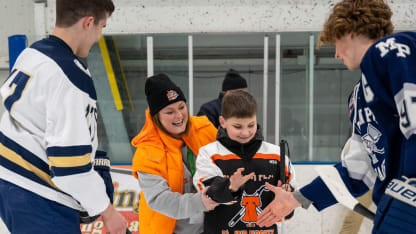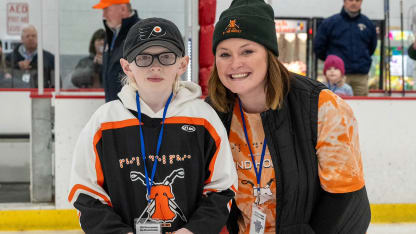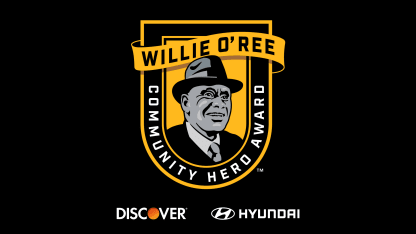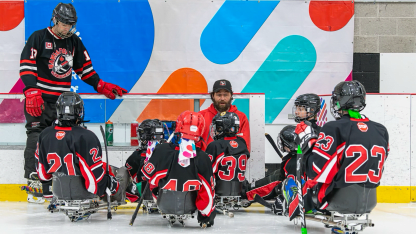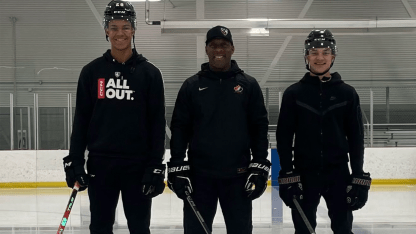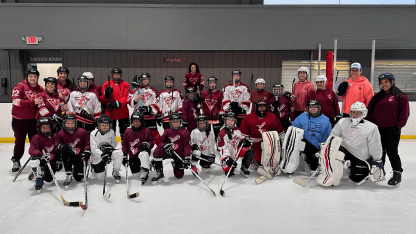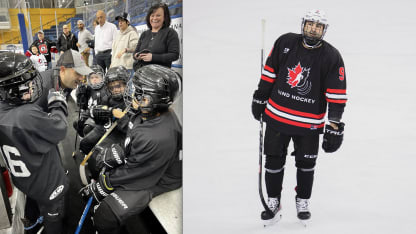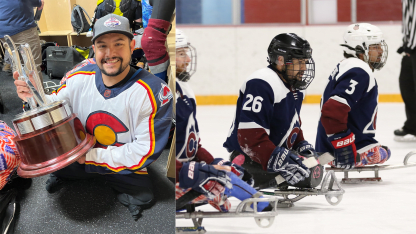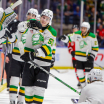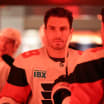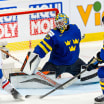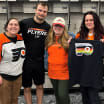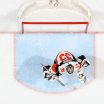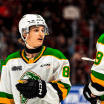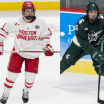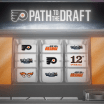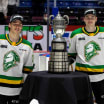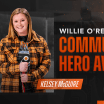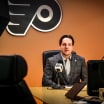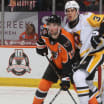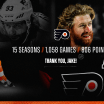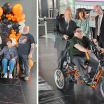The Willie O'Ree Community Hero Award presented by Discover is given to an individual who, through hockey, has positively impacted his or her community culture or society. The award honors O'Ree, the former NHL forward who became the first Black player to play in the NHL on Jan. 18, 1958, and has spent more than two decades as the NHL's diversity ambassador. After a public voting period and votes from O'Ree, NHL executives and Discover executives, the winner will be announced in June. There will be a winner from the United States and one from Canada. Today, a look at one of three United States finalists, Kelsey McGuire:
Kelsey McGuire has two passions in her life: The Philadelphia Flyers and working with visually impaired and blind children.
Though the creation of Philadelphia Blind Hockey in 2022, the 29-year-old has managed to combine them into a growing organization that has seen 26 players throughout the region take part in the organization's programs.
That includes Learn to Play Blind Hockey clinics and the Gritty Gliders, a team for children 17 and under. An adult league is in the works for next season.
Through her work, McGuire was named one of three finalists for the Willie O'Ree Community Hero Award in the United States. The winner, who will be named in June, will receive a $25,000 prize to be donated to the charity of their choice, with the other two finalists each receiving a $5,000 prize donated to a charity of their choice.
"Last year I was watching the NHL Awards and I saw the Willie O'Ree Award and the different people that were nominated, and I was like, one day I want to win this award," McGuire said. "I never thought that it would happen so soon, and so quickly. One year later, here I am as a finalist. It's just so mind-boggling to me. I want to make a difference in the hockey community, but I didn't think it would have this much of an impact on people. It's wild."

